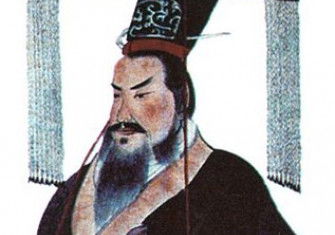

For this reason, hazelnut has been indicated to strengthen the heart and cardiovascular system. In the words of traditional Chinese medicine, reishi has a 'tropism to the heart' or also 'nourishes the heart'. This mushroom was administered as an immune support, both against threats coming from the outside and for inadequate immune system responses. Reishi was one of the basic medicinal remedies of ancient China, with references to it appearing in ancient medical writings as far back as several millennia ago.

Traditional uses of the "divine mushroom of immortality" For example, it is very rich in polysaccharides, especially beta-glucans, which harmonise the immune system and have beneficial effects on blood cholesterol levels.Īnother important group of substances includes triterpenes, which also support the body's defences. The mushroom contains a whole host of important biologically active substances. They are beneficial when there is a need to increase energy and vitalityīeneficial substances contained in reishi.They are versatile helpers during the recovery process.What makes medicinal mushroom tinctures great? Helps the immune system to function normally and harmoniously.Helps to relieve stress and stabilize emotions.His monumental mausoleum was famously adorned with thousands of intricate terracotta soldiers, meant to guard him on his journey through the afterlife.What are the most important benefits of reishi? But the China's first emperor did not believe that death was the end of the road. Of course, Qin Shihuang never found his precious elixir he died in 210 B.C., when he was 49 years old. Qin Shihuang’s obsession alienated him from Confucian scholars, who denounced his quest as charlatanry. He sent an expedition to the Eastern Sea to search for an elixir of immortality, and when that was unsuccessful, he brought magicians into his court. But throughout his rule, Qin Shihuang was preoccupied by his search for eternal life. Under Qin Shihuang’s rule, China’s currency, weights and measures were standardized, roads and canals were built, and individual fortresses were linked to create the Great Wall of China, writes East Asian historian Claudius Cornelius Müller in Encyclopedia Britannica. Aggressive and determined, he eventually subdued six of China’s enemy states and installed himself as the first emperor of the newly centralized authority a quarter century later.

He was the son of the king of Qin state, and succeeded his father as King Zheng of Qin at age 13. Qin Shihuang was born at a time when China was divided into seven warring regions. "It required a highly efficient administration and strong executive force to pass down a government decree in ancient times when transportation and communication facilities were undeveloped," Zhang explains. The documents are of particular interest to historians because, as Zhang tells Xinhua, they testify to the strength of Qin Shihuang’s leadership. According to the BBC, the writings express “assorted awkward replies from regional governments who had failed to find the key to eternal life,” though officials in one area, Langya, did suggest that an herb from a local mountain might do the trick. Zhang Chunlong, a researcher at the Hunan Institute of Archaeology, was studying 48 of the ancient strips when he discovered texts pertaining to an executive order issued by Qin Shihuang, demanding that his subjects search for an immortality elixir that would keep him alive forever. and maintained a firm grip on the throne until 210 B.C. to 210 B.C., a period that overlaps with the emperor's rule he unified China in 221 B.C. These wooden strips, commonly used as writing materials in ancient China, date from 259 B.C. The documents in question belong to a cache of some 36,000 wooden strips inscribed with ancient calligraphy, which were found in an abandoned well in a county in the western Hunan province in 2002. According to the state news agency Xinhua, recent analysis of 2,000-year-old texts dating to the emperor's rule reveals his obsessive quest for an elixir that would bring him eternal life. and declared himself Qin Shihuang or the first emperor of the Qin dynasty at age 38, wanted to be around long enough to see that prediction come true. Ying Zheng, who holds the seminal title of China's first emperor, reportedly proclaimed that his dynasty would last “10,000 generations.” Apparently, Ying Zheng, who was born in 259 B.C.


 0 kommentar(er)
0 kommentar(er)
